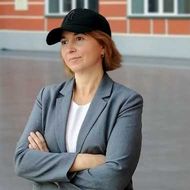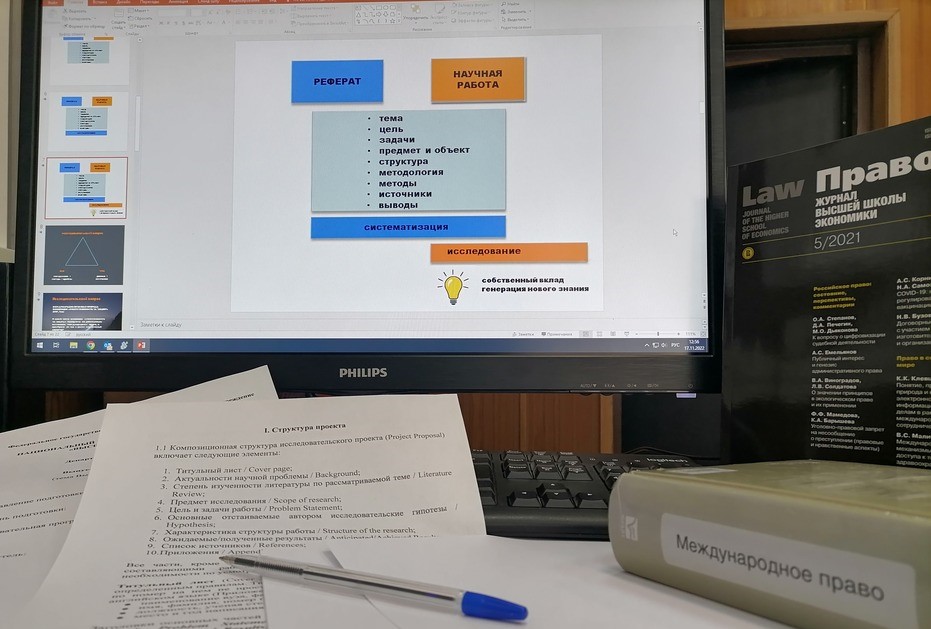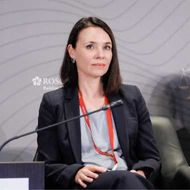- A
- A
- A
- ABC
- ABC
- ABC
- А
- А
- А
- А
- А
- HSE University
- Faculty of Law
- School of International Law
- News
- Master-class on Writing Term Papers and Theses on International Law
-
School
- About the School
- Research
- Academics
- "HSE University Journal of International Law"
-
Research and Study Laboratories and Groups
-
Research and Study Laboratories
-
Research and Study Groups
-
- Research and Methodology Units
- HSE Research Seminar on International Law
- Ph.D. Seminar
- Undergraduate track ‘International Law’
-
Projects
-
Status: active
- Applied project «Philip C. Jessup international law moot court competition training 2023-2024»
- Applied project 2024-2025 “Preparation for the Willem C. Vis Moot Competition, season 2024-2025”
- Fundamental Research Project "Legal Mechanisms for Overcoming Inequality"
- Participation of Young Lawyers as Clerks of the International Commercial Arbitration Court at the Chamber of Commerce and Industry of the Russian Federation
- Research project: International Competition ‘Dispute Resolution in the EAEU–2024’: Preparation and Participation of the Faculty of Law's Team
-
Status: completed
-
- Staff Members
-
Educational programs
- Bachelor's Programmes
- Master's Programmes
- Doctoral School of Law
Moscow, 3 Bolshoy Trekhsvyatitelsky Pereulok, rooms 227, 228b

E-mail: svetlana.smirnova@hse.ru
Located at a crossroads of global, regional, and national interests, contemporary international law affects almost all spheres of society. The School of International Law keeps pace with significant international events and legal adjudication in order to provide hands-on education that prepares future lawyers and legal scholars for the demands of the current legal landscape. The School is at once a ‘think tank’ that provides expert analysis and a producer of top legal experts and lawyers in international law.
Olga Starshinova, Elena Murashko.
Chinese Journal of International Law. 2025. Vol. 24. No. 3.
In bk.: Sanctions, Business and Human Rights. Clarity Press, 2025. P. 346-366.
 MANDATORY CORPORATE HUMAN RIGHTS DUE DILIGENCE MODELS: SHOOTING BLANKS?
MANDATORY CORPORATE HUMAN RIGHTS DUE DILIGENCE MODELS: SHOOTING BLANKS?
Rusinova V., Sergei K.
Law. LAW. Высшая школа экономики, 2021

Master-class on Writing Term Papers and Theses on International Law

The training was based on the idea of the difference between an abstract and a scientific paper, which can be either a term paper or a thesis, or an article or even a thesis. So, an abstract is a logical, structured work that systematizes information on a specific topic. The scientific work also meets these criteria, but, unlike the abstract, is a study whose results contribute to the development of a specific topic. Research, unlike abstract work, generates new knowledge.
The speaker shared the "secret of success" for writing any scientific work, suggesting using the "triangle" system. The three central points defining the essence of the research include: the research question (which question does the research answer?), methodology and methods (how, based on what techniques and approaches will the answer to this question be given?) and sources, information, empirical materials (what exactly will be studied?). After analyzing several examples of successfully posed research questions, the training participants tried to formulate questions for their term paper or thesis. In the second part, V.N. Rusinova discussed the specifics of the methodology of international law, special methods and techniques that can be used in the research, and also shared useful links. At the end of the training, the speaker outlined the main ways of "life after": how and where the conducted research can be used after receiving evaluation and defense.
- About
- About
- Key Figures & Facts
- Sustainability at HSE University
- Faculties & Departments
- International Partnerships
- Faculty & Staff
- HSE Buildings
- HSE University for Persons with Disabilities
- Public Enquiries
- Studies
- Admissions
- Programme Catalogue
- Undergraduate
- Graduate
- Exchange Programmes
- Summer Schools
- Semester in Moscow
- Business Internship
- © HSE University 1993–2025 Contacts Copyright Privacy Policy Site Map
- Edit

